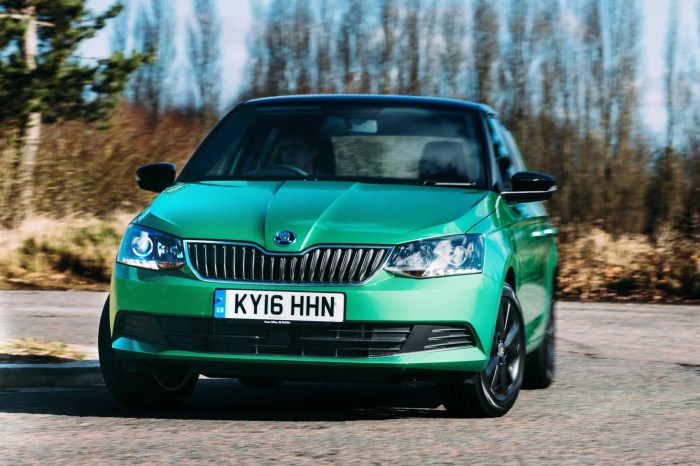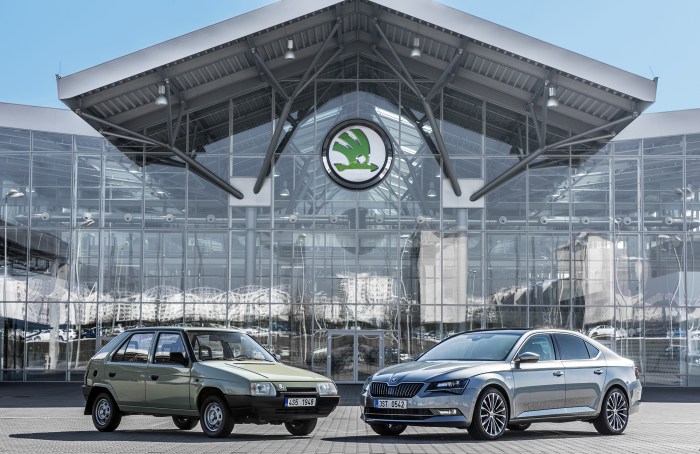When Volkswagen bought Skoda in 1991, it marked a significant turning point for both companies. This acquisition not only reshaped the automotive landscape but also had a profound impact on the Czech automaker’s trajectory. In this article, we delve into the history, motivations, and consequences of Volkswagen’s acquisition of Skoda, exploring its impact on the brand and the industry as a whole.
Skoda’s origins date back to 1895, while Volkswagen was founded in 1937. Over the years, both companies faced challenges and triumphs, but it was their merger that proved to be a game-changer.
History of Volkswagen and Skoda: When Volkswagen Bought Skoda
Volkswagen and Skoda, two iconic automotive brands, share a rich history marked by innovation, engineering excellence, and a shared passion for driving.
Establishment of Volkswagen
Volkswagen, meaning “people’s car” in German, was founded in 1937 by the German government. Its mission was to create an affordable, reliable car for the masses. The iconic Volkswagen Beetle, introduced in 1938, became a symbol of the brand and played a crucial role in motorizing Germany.
Origins of Skoda
Skoda, on the other hand, has its roots in the Czech Republic. The company was founded in 1895 as Laurin & Klement, a bicycle manufacturer. In 1925, the company merged with Skoda Works, a heavy machinery manufacturer, to form Skoda Auto.
Key Events Leading to Volkswagen’s Acquisition of Skoda
The relationship between Volkswagen and Skoda began in the early 1990s, as Czechoslovakia was transitioning to a market economy. In 1991, Volkswagen acquired a 30% stake in Skoda, and in 2000, it increased its stake to 100%. This acquisition marked a significant milestone in the history of both companies, bringing together their expertise and resources.
Volkswagen bought Skoda in 1991, which gave the German automaker a foothold in the Eastern European market. If you’re wondering how to pronounce Volkswagen, here’s a guide that will help you get it right. Back to the topic of Volkswagen’s acquisition of Skoda, it proved to be a strategic move that helped Volkswagen expand its global reach.
Reasons for Volkswagen’s Acquisition of Skoda

Volkswagen’s acquisition of Skoda in 1991 was a strategic move driven by a combination of financial and operational motivations. Volkswagen sought to expand its market presence, enhance its product portfolio, and gain access to new technologies.
Volkswagen acquired Škoda in 1991, which marked a significant milestone in the automotive industry. If you own a Volkswagen, you may wonder how often it should be serviced. Fortunately, there are comprehensive resources available to guide you. Visit this website for detailed information on Volkswagen service intervals.
It provides valuable insights to help you maintain your vehicle’s optimal performance and extend its lifespan. Remember, Volkswagen’s acquisition of Škoda remains a testament to its commitment to expanding its global presence.
Financial Benefits
Skoda’s acquisition provided Volkswagen with a cost-effective means of entering the Eastern European market. Skoda had a strong brand recognition and a well-established dealer network in the region, which allowed Volkswagen to quickly expand its sales reach. Additionally, Skoda’s low production costs and access to skilled labor enabled Volkswagen to produce vehicles at a lower cost, increasing its profit margins.
When Volkswagen bought Skoda in 1991, it was a major move that helped to expand the German automaker’s global reach. Skoda has since become a key part of Volkswagen’s success, and its vehicles are known for their reliability and affordability.
If you’re considering a Volkswagen Tiguan, you’ll be pleased to know that it’s one of the most reliable SUVs on the market. To learn more about the Volkswagen Tiguan’s reliability, check out this article . Volkswagen’s acquisition of Skoda has been a major factor in the automaker’s success, and it’s a testament to the quality of Skoda’s vehicles.
Product Portfolio Expansion
Skoda’s product line complemented Volkswagen’s existing offerings, allowing the company to cater to a wider range of customers. Skoda’s focus on producing smaller, more affordable vehicles filled a gap in Volkswagen’s lineup, which primarily consisted of larger, more expensive models.
Volkswagen’s acquisition of Skoda in 1991 marked a significant expansion for the German automaker. Since then, Volkswagen has continued to expand its portfolio, but many wonder if it includes trucks. To find out, check out does volkswagen make a truck . Returning to the Skoda purchase, it proved to be a shrewd move for Volkswagen, solidifying its position in the automotive industry.
Technology Sharing
Volkswagen recognized the potential for synergies in technology sharing with Skoda. Skoda had developed several innovative technologies, such as its lightweight construction techniques and advanced engine designs, which Volkswagen could leverage to improve its own vehicles.
By acquiring Skoda, Volkswagen significantly increased its market share in Europe, particularly in the Eastern European region. This allowed the company to compete more effectively with other major automakers and strengthen its position as a leading global automotive manufacturer.
When Volkswagen bought Skoda in 1991, it was a major step in the German automaker’s journey to becoming one of the world’s largest and most successful car companies. Volkswagen’s success can be attributed to a number of factors, including its focus on innovation, quality, and affordability.
For more insights into Volkswagen’s rise to success, check out this article: How Volkswagen Became Successful . The acquisition of Skoda allowed Volkswagen to expand its product lineup and enter new markets, further solidifying its position as a global automotive leader.
Impact of Volkswagen’s Acquisition on Skoda

Volkswagen’s acquisition of Skoda in 1991 marked a significant turning point for both companies. Volkswagen brought its vast resources, technological expertise, and global reach to Skoda, while Skoda contributed its strong brand presence in Central and Eastern Europe and a skilled workforce.
Volkswagen’s influence on Skoda can be seen in various aspects of the company’s operations, products, and brand image.
Changes in Operations
Volkswagen introduced modern manufacturing techniques and quality control systems at Skoda’s plants, resulting in improved efficiency and product quality. The company also invested heavily in research and development, leading to the development of new models and technologies.
Product Improvements
Under Volkswagen’s ownership, Skoda’s product lineup underwent a complete overhaul. New models were introduced, such as the Fabia, Octavia, and Superb, which quickly gained popularity for their combination of value, practicality, and style. Volkswagen also helped Skoda improve the quality and reliability of its existing models.
Brand Image Enhancement
Volkswagen’s global marketing and distribution network helped Skoda reach new markets and enhance its brand image. The company’s association with Volkswagen also gave Skoda a boost in credibility and prestige.
Successful Collaborations and Product Launches
One of the most successful collaborations between Volkswagen and Skoda was the development of the Volkswagen Passat and Skoda Superb. These two models shared the same platform but had distinct designs and target markets. The Passat was aimed at the premium sedan segment, while the Superb offered a more spacious and affordable alternative.
Another notable product launch was the Skoda Yeti, a compact SUV that quickly became popular for its versatility and off-road capabilities. The Yeti was developed in collaboration with Volkswagen and shared its platform with the Volkswagen Tiguan.
Current State of Skoda under Volkswagen’s Ownership
Skoda, under the ownership of Volkswagen, has evolved into a significant player within the automotive industry. The brand has established a solid position within the Volkswagen Group, showcasing impressive growth and contributing to the group’s overall success.
Skoda currently holds a substantial market share in various regions, particularly in Europe and India. The brand’s product portfolio has expanded significantly, encompassing a wide range of models that cater to diverse customer needs. Skoda’s future prospects appear promising, with the brand poised for continued growth and innovation.
Skoda is strategically positioned within the Volkswagen Group as a value-oriented brand that offers a compelling blend of quality, practicality, and affordability. The brand has successfully carved out a niche in the market, appealing to customers seeking reliable and well-equipped vehicles at competitive prices.
In terms of market share, Skoda has witnessed steady growth over the years. In Europe, the brand ranks among the top 10 automakers, with a significant presence in countries such as Germany, the Czech Republic, and Poland. Skoda also enjoys a strong market position in India, where it has emerged as a leading player in the mid-size sedan segment.
Product Portfolio and Expansion
Skoda’s product portfolio has undergone significant expansion under Volkswagen’s ownership. The brand now offers a diverse range of models that cater to various customer preferences and market segments.
- Hatchbacks:Skoda’s hatchback offerings include the popular Fabia and Scala, which combine practicality, style, and affordability.
- Sedans:The brand’s sedan lineup features the Rapid, Octavia, and Superb, which offer spacious interiors, advanced features, and elegant designs.
- SUVs:Skoda’s SUV range includes the Kamiq, Karoq, and Kodiaq, which cater to the growing demand for versatile and rugged vehicles.
- Electric Vehicles:Skoda has also embraced electrification, introducing the Enyaq iV, its first all-electric SUV.
Future Prospects and Innovations
Skoda’s future prospects under Volkswagen’s ownership appear promising. The brand is well-positioned to capitalize on the growing demand for affordable and reliable vehicles, particularly in emerging markets.
Skoda is actively investing in research and development, focusing on areas such as electric mobility, autonomous driving, and connectivity. The brand aims to maintain its competitive edge by introducing innovative technologies and features that enhance the driving experience.
Ultimate Conclusion
Today, Skoda stands as a testament to the success of Volkswagen’s acquisition. The Czech automaker has become a global player, renowned for its reliability, innovation, and value for money. Volkswagen’s investment has not only revitalized Skoda but has also strengthened its position within the Volkswagen Group, creating a formidable automotive powerhouse.
1 thought on “Volkswagen’s Acquisition of Skoda: A Transformative Deal”